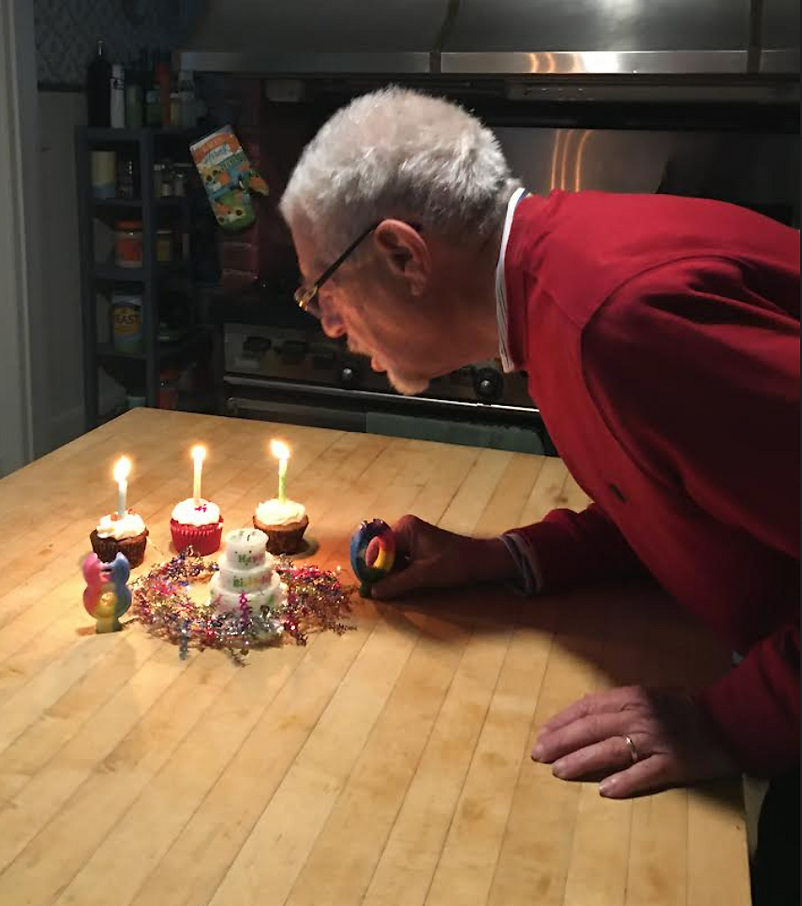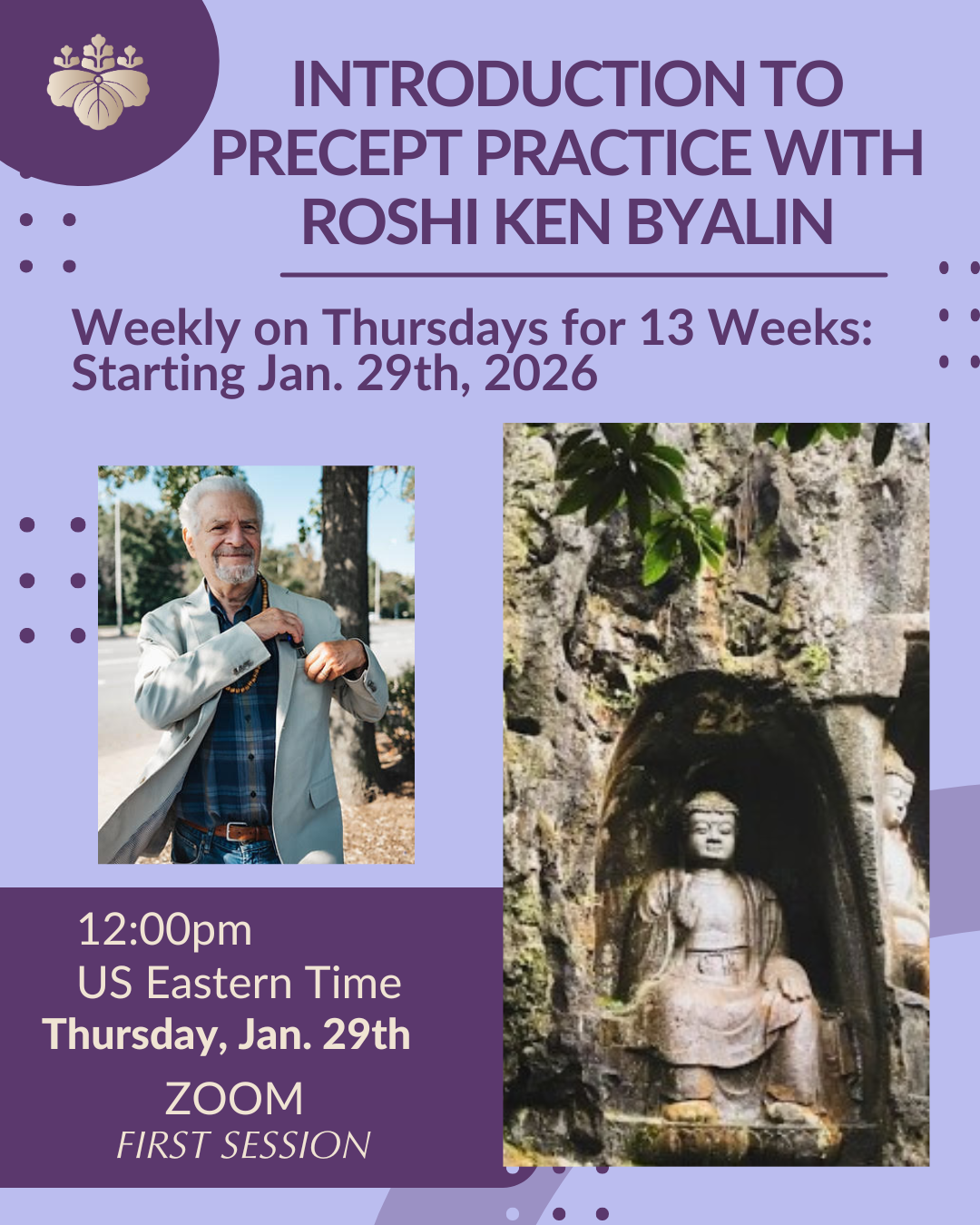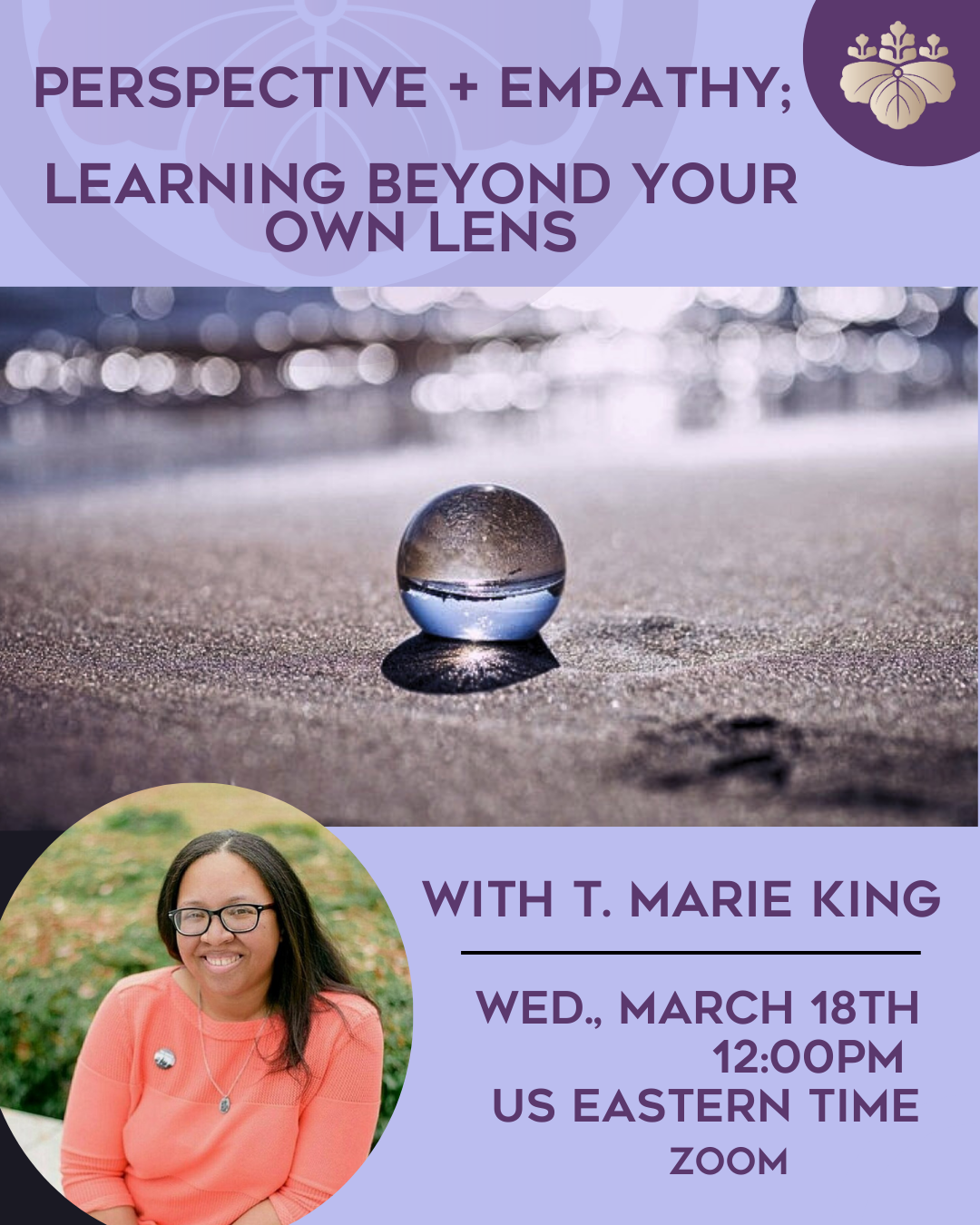This Evening Gatha is chanted during a sesshin at the conclusion of each evening sitting.
Let me respectfully remind you
Life and death are of supreme importance
Time swiftly passes by and opportunity is lost
Each of us should strive to awaken, awaken
Take heed, this night your days are diminished by one
Do not squander your life.
“This night your days are diminished by one” always struck me. You never know when you might walk out of the zendo and get run over by a bus. That was always an important warning, a heads-up. Live each day as if it might be your last.
Now the Gatha holds additional meaning. I never expected to retire. Retirement was always five to ten years in the future.
I didn’t expect to make it to 80.
Even if I don’t get hit by a bus, the number of days now feels finite if still unknown. I am fortunate with my health. No doctor has yet told me, “You have only two more years to live.” Or any other finite number.
My father died in his mid-60’s and, although it didn’t seem so young then, it seems very young now. Bernie died just weeks before his 80th.
Bernie and I were close to the same age. Although he is my father in the Dharma, he was only four years older. We came upon Zen at what could have been the same moment in 1959, me in a bookstore looking for help with a haiku assignment in English, during my junior year in high school, Bernie in a college course in comparative religions. We each knew quickly that we had stumbled on something important.
And then our paths diverged. Bernie quickly found friends in California to sit with and soon met his teacher, Taisan Maezumi Roshi.
My path was circuitous. Although that summer in North Carolina, I did get my friends to shave my head, my hair grew back. I bought a Zen book every year, mostly left unread, and tried to teach myself to meditate during summer vacations without success. I didn’t finally find a group to sit with, at the Soho Zendo, until 1990. It wasn’t until 1992, 33 years after my first encounter with Zen in that suburban bookstore, that I found my way to Bernie in Yonkers. I was getting to this Zen practice very late. What hope was there for me?
Jishu was encouraging. When senior practitioners at the Zen Community of New York shook my confidence, demanding, “What makes you think you’re ready to ordain after only a couple of years of sitting?” Jishu told me that I hadn’t wasted those 33 years.
For all those years, I had been studying my self in psychoanalysis, in Encounter Groups, in Consciousness Raising Groups. Jishu reminded me of Dogen’s teaching, to study Zen is to study the self. Although I hadn’t been studying Zen, hadn’t had a sitting practice, I had most definitely been studying my self. Not at all a waste of time was Jishu’s conclusion.
But still, coming to Zen practice in my early fifties, I felt far behind. I found comfort in Chao Chou.
Among the most celebrated of the classic Chinese Zen teachers, Chao Chou had also come late to Zen, had received transmission late and then only after years of tending to his aging teacher, then after his teacher’s passing travelling to test and sharpen his understanding, only then had be begun to teach at the age of 80. And then miraculously, he had taught for 40 years.
I hadn’t expected to live this long. Although my mother had lived into her 90’s, I had gone through my 60’s in trepidation. Would my life be as short as my father’s?
But once I made it through, I stopped thinking about aging. Until recently.
As I approached 80, I began to think about the “Elders”. Bernie had created the Zen Peacemaker Elders probably ten years ago — you had to be 80 years old to be an Elder — with Muryo, Peter Matthiessen, Bernie’s first Dharma successor, and Bob Lee, the San Francisco psychiatrist who had been Bernie and Jishu’s marriage counselor, as the first members. As far as I know, they were the only members.
Bernie didn’t make it to 80.
For weeks, I’d been wondering, “Will I?”
On the morning of my birthday, I got out early for a walk — I wanted to make sure I got a walk in — and then drove Morri to the ferry. I picked up a second cappuccino and filled the gas tank. By noon, I was home. Safely home. No plans to go out for the rest of the day, I figured I was going to make it to 80. I made it.
I am declaring myself an Elder. I have embraced being called “Roshi,” literally “old teacher.”
Like Chao Chou, is now the time for me to teach?
When I retired last Spring as president of our network of charter schools, I was stepping into the unknown. Lots of people were sure that I would jump into a new social venture. After receiving transmission from Bernie, I had spent fifteen years carrying on what I took to be his social enterprise legacy, paying relatively little attention to the traditional duties of Zen teachers. My social enterprise work was my Zen practice.
What now?
What form will my teaching take?
How many days do I have?
Will I have any Dharma successors?
Don’t know.
Although many Zen teachers seem to measure their success by the number of their successors, I am comforted again by Chao Chou. The great Chao Chou had no Dharma successors. And yet his teaching lives on as koans studied by Zen students everywhere. Today, “Chao Chou’s Dog” is perhaps the best known of all koans.
I am continuing to work with the small group of students who have been able to find me. And I am blogging here.
The great Japanese reformer of Rinzai Zen, Hakuin Zenji, described the place you find yourself when you have passed through the Nanto koans, the “hard to pass” koans.
“Now you may pass your days in tranquility, drinking tea when there is tea, eating rice when there is rice. If there is nothing further to do, that is all right; if there is something to do, that is all right.”[1]
To me, it sounds like the place of the 80-year-old in retirement.



